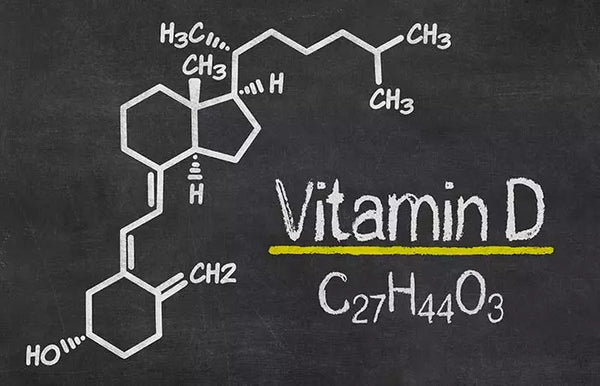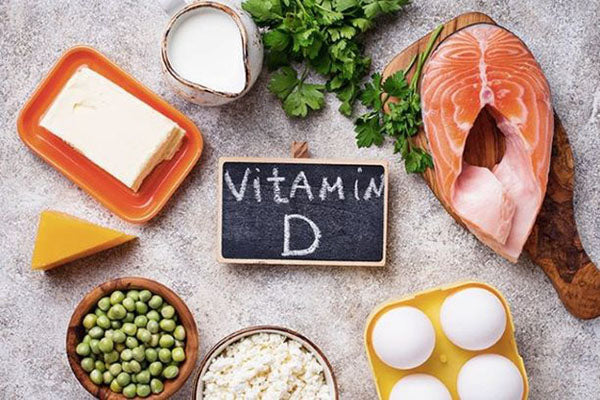
Vitamins and Minerals Maintain Metabolism

Did you know that a number of these vitamins and minerals maintain metabolism in the body?
Metabolism is the process the body uses to break down food and nutrients for energy and supports a number of different functions in the body. What we eat, including vitamins and minerals, affects metabolism.
Metabolism is known to burn calories faster, so it is less likely that a person will experience weight gain. This process of converting matter into energy will slow down as you get older.
Some vitamins and minerals can help keep the metabolism working effectively which usually comes from supplements or food sources that contain lots of vitamins and minerals.
Here are 5 of the best vitamins and minerals to maintain and improve body functions, including metabolism, and support good weight control.
Vitamins B

Vitamin B have many important roles in energy metabolism in the body. B vitamins include:
- B12
- Biotin
- Folate
- B6
- Pantothenic Acid or B-5
- Niacin or B-3
- Riboflavin or B-2
- Thiamine or B-1
Deficiency of one B vitamin can affect other B vitamins, which can interfere with a person's metabolism.
- B12 is essential for protein and fat. To work properly, it needs B6 and folate
- B6 also helps with protein metabolism.
- Thiamine Helps the body's metabolism of fats, proteins, and carbohydrates.
The ability to process fats, proteins, and carbohydrates is very important.
A good metabolism will encourage the body to convert nutrients into energy instead of storing it as fat.
In order for the conversion process to become maximum energy, we must meet the body with sufficient intake of Vitamin B complex.
Purchase vitamin B supplements here.
Main food sources rich in B vitamins:
- Lean meats and seafood
- Grains, including barley and brown rice
- Dairy products
- Eggs
- A wide variety of fruits such as apples, grapes, watermelon and bananas.
- Nuts and seeds
- Some vegetables, including spinach, potatoes, and pumpkin
B-12 is only found in animal products, which means people with vegetarian and vegan lifestyles may have difficulty consuming adequate amounts of this vitamin.
In addition to dairy products, here are a number of foods that contain vitamin B12:
- Nutritional yeast plant milk
- Fortified breakfast cereals
- Some spreads, such as Marmite
Vitamin D
Two studies looked at the correlation between vitamin D and body weight in older women and children. Both studies found that participants who had a lot of fat had lower levels of vitamin D than those who had less fat.
Researchers are currently unsure whether low vitamin D contributes to obesity or vice versa. Diet, blood sugar control, and time spent outdoors may play a role in a person's weight.
Research shows that vitamin D can help control blood sugar and improve insulin resistance in people with diabetes.
Unlike other essential vitamins, you can get your vitamin D from the sun. Safe sun exposure is the main source of getting vitamin D intake.
Foods that contain vitamin D include:
- Egg yolks
- Fatty fish: salmon, mackerel, and sardines
- Cod liver oil
- Beef liver Fortified
- milk Fortified
- vegetable milk
- Fortified breakfast cereals
- Several types mushrooms
If a person is gaining weight, vitamin supplementation alone is sufficient to improve weight. Weight loss should come from lifestyle changes as well.
However, a 2016 found that postmenopausal women with type 2 diabetes, who frequently consumed yogurt fortified with vitamin D, could improve blood sugar levels and reduce inflammation. They also experienced a reduction in waist size.
Another study found that taking calcium with added vitamin D at the same time slightly reduced the risk of weight gain in postmenopausal women.
You should have their vitamin D levels checked every 12 months and consult your doctor regarding the amount you should take.
Buy vitamin D supplements here
Calcium

In line with the above, further research suggests calcium may be important for a healthy metabolism, blood sugar control, and healthy bones.
A number studies from 2010 suggest higher levels of calcium along with vitamin D can aid weight loss.
An older 2007 found that a diet high in dairy calcium was able to promote weight loss in people with type 2 diabetes.
However, more recent and complex research is needed to prove whether this strategy is effective.
The way to get enough calcium can be met from the following food sources. Foods that contain high calcium are:
- Milk
- Yogurt
- Cereals
- Orange juice
- Dark green leafy vegetables
- Seeds
- Almonds
Iron
The body needs iron for metabolism, growth and development. Iron is also important for cell function and the production of various hormones.
Iron plays an important role in bringing oxygen to red blood cells. Red blood cells distribute muscle oxygen in tissues in the body.
If a person has low iron levels, their body may not send enough oxygen to their muscles. Muscles that have low oxygen levels are unable to burn fat.
Iron deficiency also interferes with optimal metabolism in the body.
Sources of iron include:
- Meat
- Peas Fortified
- cereals
- Brown rice
- Dark green leafy vegetables
- Tofu and soybeans
Although iron is very important, it is also toxic when taken in high doses. Therefore, you should talk to your doctor or nutritionist about whether they are iron deficient before they take supplements.
Magnesium
Without magnesium, chemical reactions that produce energy in the body cannot occur. This dependence indicates that magnesium is essential for metabolism and energy production.
Magnesium is available in a wide variety of foods, including:
- nuts and seeds,
- legumes
- spinach
- bananas
- salmon and halibut
- whole grains
- potatoes
You can also take magnesium supplements and should talk to your doctor first, as they may have adverse effects on people. with some underlying health conditions.
Conclusion
Anyone thinking of taking vitamin or mineral supplements to boost metabolism and lose weight should talk to their doctor first.
Consuming these vitamins and minerals does not necessarily increase metabolism. However, these substances will help ensure adequate nutrition and correct deficiencies if any, which can help prevent weight gain and maintain a healthy metabolism.
Some supplements can cause side effects in high doses and worsen health conditions.
The safest way to consume more metabolism-boosting vitamins and minerals is to eat a healthy, balanced diet that is varied and nutritious.






